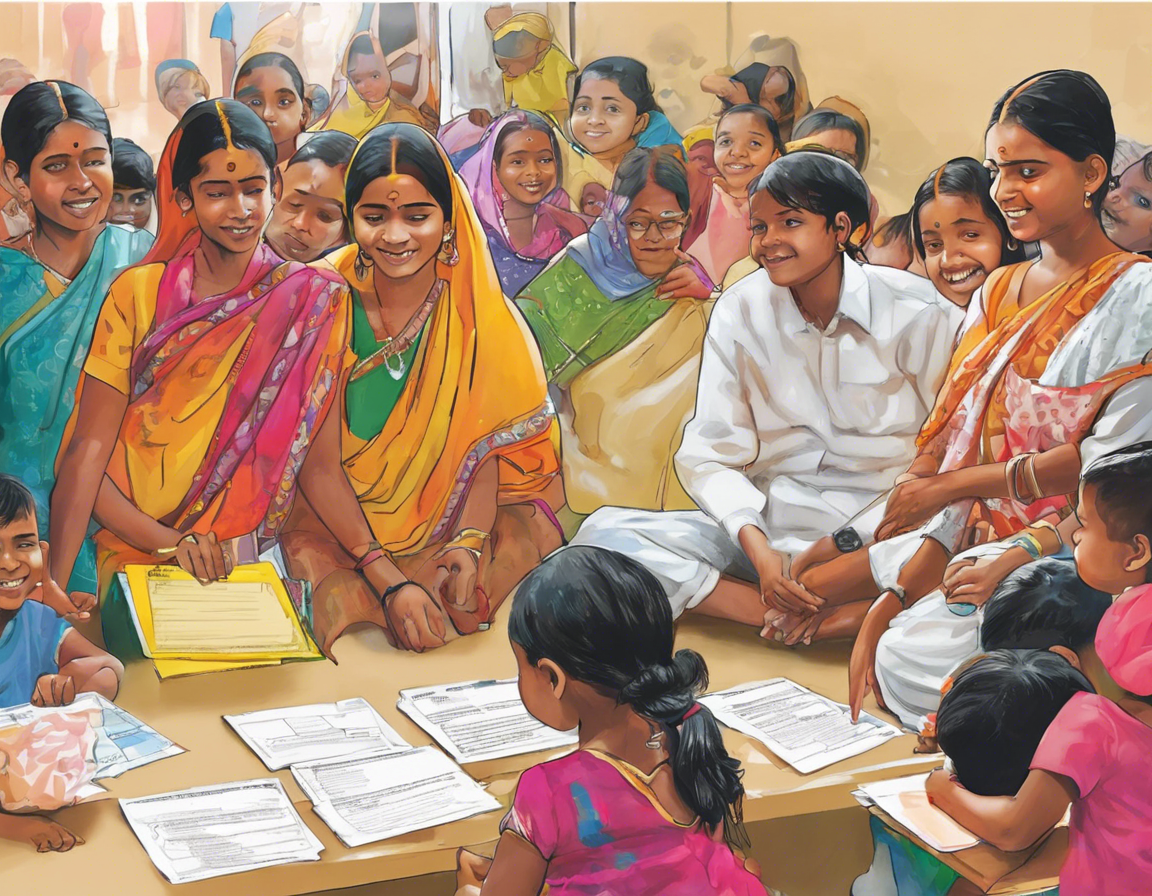As we navigate through the challenges posed by the ongoing global pandemic, one aspect that has gained significant prominence is public health. In recent times, there has been a growing emphasis on initiatives aimed at enhancing nutrition and well-being, with a particular emphasis on maternal and child health. One such initiative that has been making waves in India is the Poshan Abhiyaan.
What is Poshan Abhiyaan?
Poshan Abhiyaan, also known as the National Nutrition Mission, is a flagship scheme of the Government of India launched in March 2018. The primary objective of the mission is to address malnutrition in children and pregnant women by leveraging the Integrated Child Development Services (ICDS) platform. The mission aims to ensure holistic development and adequate nutrition for children, pregnant women, and lactating mothers.
Mission Objectives:
The mission is multifaceted with a range of objectives aimed at improving the nutritional status of specific demographics. Some of the key objectives include:
1. Preventing and reducing stunting, undernutrition, anemia, and low birth weight
2. Promoting the importance of optimal infant and young child feeding practices
3. Engaging with communities to spread awareness about good nutrition and health practices
4. Strengthening and monitoring the ICDS platform to deliver quality services
Poshan Abhiyaan 2023 Updates:
As we move forward into 2023, the Poshan Abhiyaan has seen significant progress and garnered attention for its impactful initiatives. Some of the updates and developments include:
1. Targeted Interventions:
The mission is focusing on targeted interventions to address specific nutritional challenges faced by various states and regions. Efforts are being made to tailor strategies according to the local requirements and demographic profiles to maximize impact.
2. Technology Integration:
Poshan Abhiyaan is leveraging technology for efficient monitoring and implementation of nutrition-related programs. The use of mobile apps, data analytics, and online platforms is streamlining processes and enhancing accountability.
3. Advocacy and Awareness Campaigns:
To create a wider impact, the mission is actively involved in advocacy and awareness campaigns at the grassroots level. These campaigns aim to educate communities about the significance of proper nutrition and health practices.
4. Collaboration and Partnerships:
Collaboration with various stakeholders, including government agencies, non-governmental organizations, academic institutions, and private sector entities, is being strengthened to ensure a coordinated approach towards addressing malnutrition.
5. Capacity Building:
Efforts are being made to enhance the capacity of frontline workers such as Anganwadi workers and ASHAs (Accredited Social Health Activists) to deliver quality nutrition services. Training programs and skill development initiatives are being conducted to empower these crucial workforce members.
6. Monitoring and Evaluation:
A robust monitoring and evaluation framework is in place to track the progress of the mission. Regular assessments and data analysis help in identifying gaps and formulating strategies for continuous improvement.
FAQs:
Q1: What are the key components of Poshan Abhiyaan?
A1: The key components of Poshan Abhiyaan include complementary feeding, antenatal care, growth monitoring, and anemia control, among others.
Q2: How can individuals contribute to the success of Poshan Abhiyaan?
A2: Individuals can contribute by adopting healthy eating habits, spreading awareness about nutrition, and actively participating in community programs focused on health and well-being.
Q3: What role do Anganwadi centers play in the implementation of Poshan Abhiyaan?
A3: Anganwadi centers serve as the frontline delivery points for nutrition and health services under Poshan Abhiyaan. They play a crucial role in providing meals, supplements, and health education to beneficiaries.
Q4: How does Poshan Abhiyaan address micronutrient deficiencies?
A4: Poshan Abhiyaan addresses micronutrient deficiencies through the provision of iron and folic acid supplements, Vitamin A and D supplements, and other interventions aimed at improving the nutritional status of beneficiaries.
Q5: What are the key challenges faced by Poshan Abhiyaan in its implementation?
A5: Some of the key challenges faced by Poshan Abhiyaan include inadequate infrastructure, limited awareness in certain regions, logistical issues, and the need for sustained funding and support.
In conclusion, Poshan Abhiyaan stands as a beacon of hope in the realm of public health, particularly concerning maternal and child nutrition. With its holistic approach, focus on community engagement, and leveraging of technology, the mission continues to make strides in combating malnutrition and improving the overall health outcomes of vulnerable populations. Through collaborative efforts and sustained dedication, Poshan Abhiyaan is paving the way for a healthier and more empowered future for all.
